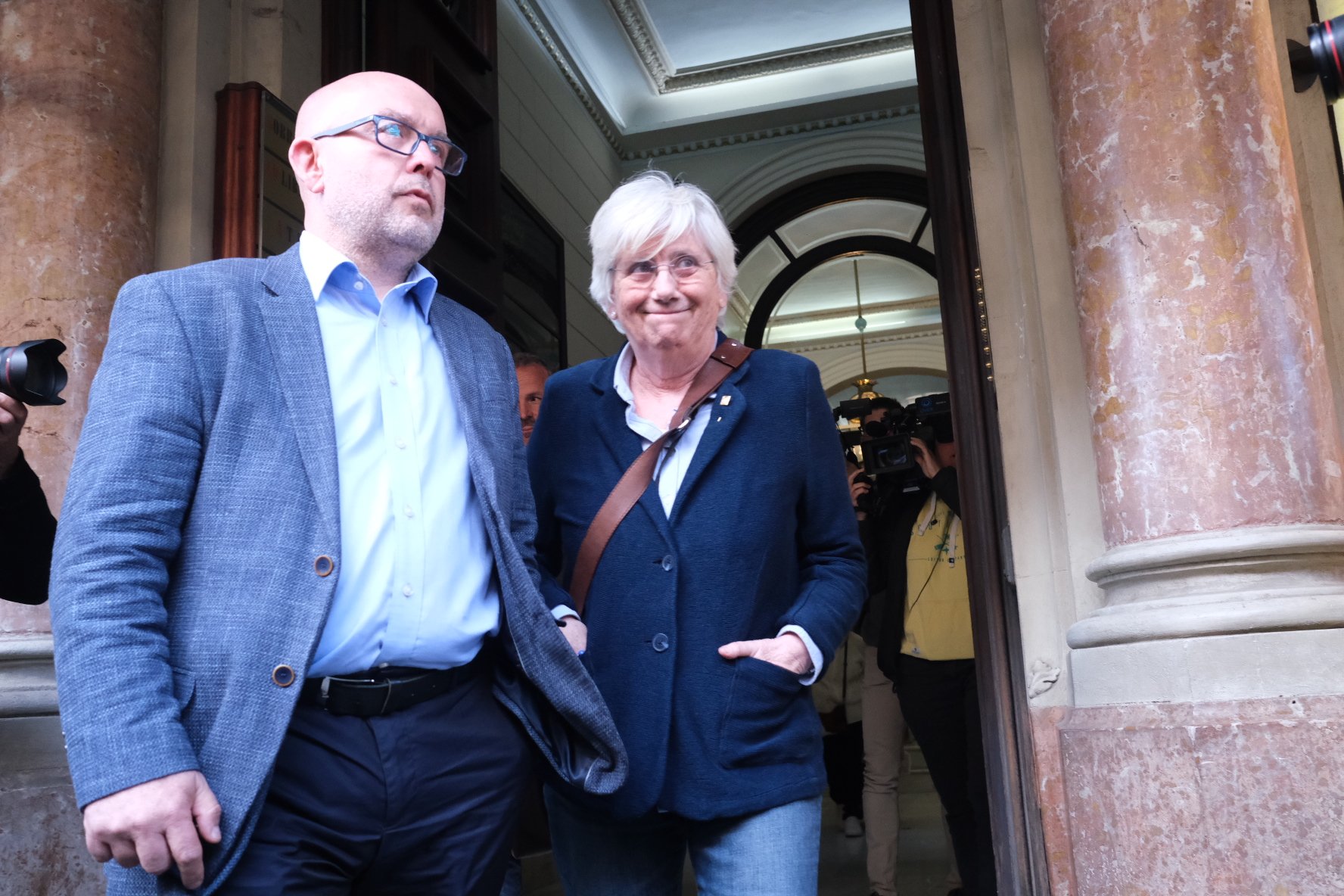The arrest of MEP Clara Ponsatí on March 28th has opened a new front of appeals by her defence team. The lawyer Gonzalo Boye today presented an appeal for annulment before Barcelona investigating court No 4, the duty court on that Tuesday, to which Ponsatí was taken by the Mossos police. That appeal calls for the annulment of the judge's decision to dismiss his habeas corpus demand, which had asked for the immediate release of Ponsatí. And, before resolving this appeal, Boye also asks for several preliminary questions to be raised at the European Court of Justice (ECJ) regarding, among other issues, the arrest of an MEP when it is carried out without first having obtained the mandatory request from the European Parliament.
Ponsatí returned to Barcelona at the end of March, for the first time since she went into exile in 2017, and after the reform of the Spanish Penal Code had reduced the charges against her to one of disobedience. The MEP was arrested by the Mossos while on her way to an event at the Junts MEPs' office in El Born, just after taking part in a press conference at the Journalists Association. The Mossos took her to the duty court, where she was held for hours. Her lawyer lodged a handwritten habeas corpus petition then and there, claiming that the detention was illegal, and demanding her immediate release.
Court refuses 'habeas corpus'
The duty court considered that Ponsatí's arrest did not meet the necessary requirements to initiate habeas corpus procedure, given that it was in response to a court order, and thus it ruled against putting her at immediate judicial disposal before the competent authority, and instead required the MEP's detention to continue while her situation was judicially resolved. The resolution also indicated that against this decision there was only the possibility of presenting an appeal before the Constitutional Court.
Boye has presented before the duty court an appeal for the annulment of actions with regard to this rejection. Key elements were that Ponsatí was arrested by the Mossos police even though she had shown her identification card as an MEP, and despite the fact that the Spanish national arrest warrant against her had been issued by the Supreme Court investigating judge, Pablo Llarena, with regard to whom the defence lawyer says it is "improper" that he is conducting the investigation against the pro-independence leaders, and he does not have the right to act against Ponsatí as she is not an office holder in Spain.
Breach of MEP's rights
According to the lawyer, the denial of the habeas corpus writ by the duty court violates some of Ponsatí's rights including those to effective judicial protection and the right to personal liberty. In addition, he complains that the primacy of EU law on the immunity of MEPs, which makes it obligatory to "not apply provisions and acts that are contrary to EU law", was disregarded. He recalls the 2019 judgment of the ECJ in the case of Oriol Junqueras, which concluded that a member of the European Parliament cannot be deprived of liberty without the prior granting of the corresponding request to the parliament for a waiver of immunity. And this, the text indicates, "evidences the illegality of the detention" of Ponsatí. In this regard, Boye also notes that Ponsatí was about to participate in an event that came about through her status as MEP, in the office that the Junts MEPs have in Barcelona.
Preliminary questions
Because of all of this, the lawyer calls for the annulment of the decision to reject the habeas corpus writ. In addition, he urges the duty court to present several preliminary questions to the European Court of Justice on the violation of rights that Ponsatí has suffered, after being arrested by order of a judge who, according to the lawyer, is not the one predetermined by law to judge her. He also asks for clarification before the ECJ of whether MEPs are affected by the same special rules as Spanish parliamentarians who are required to be brought before the Supreme Court over legal matters; and on the consequences of arresting an MEP without the corresponding parliamentary waiver having been granted.

